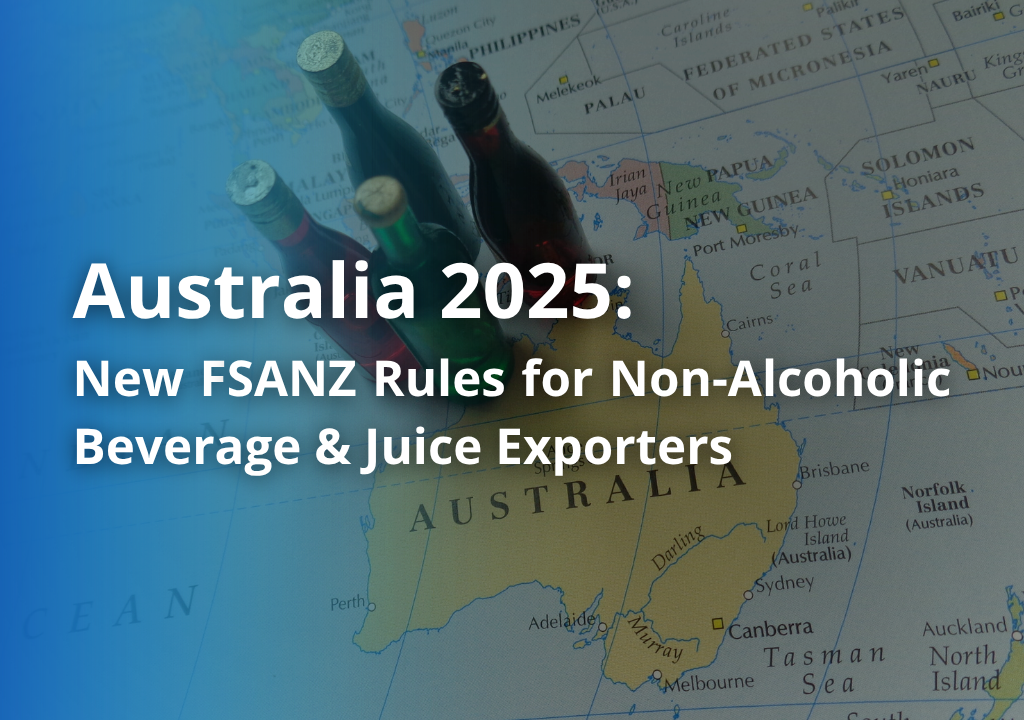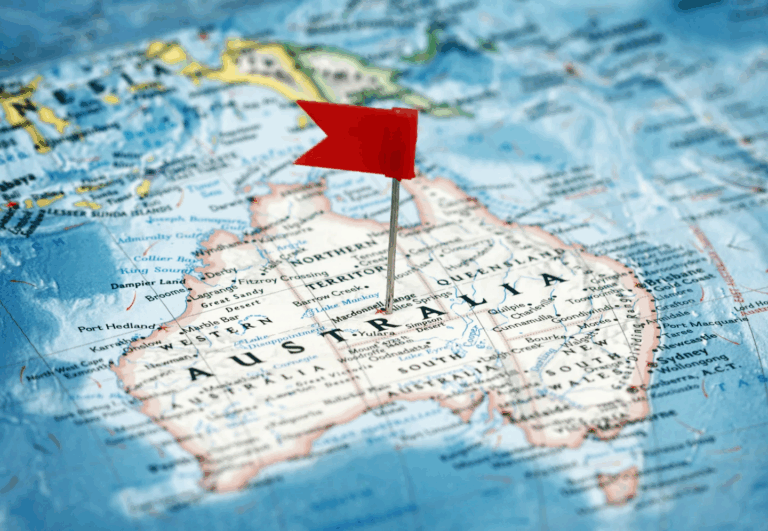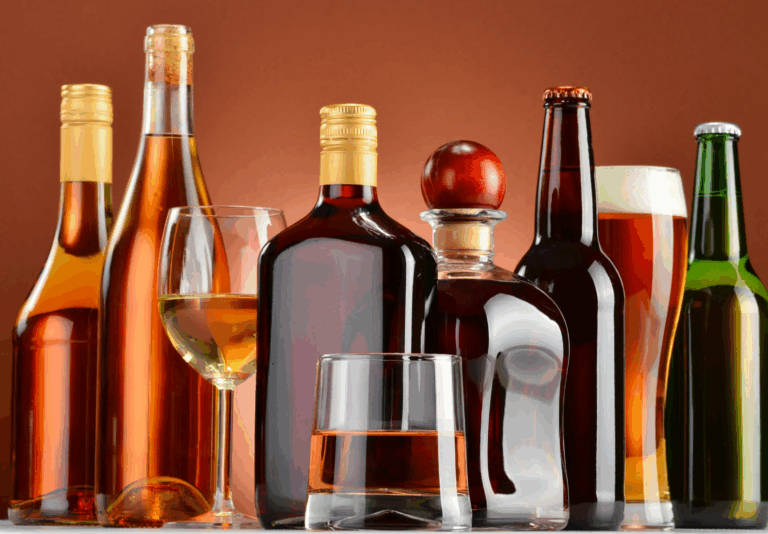Australia 2025: New FSANZ Rules for Non-Alcoholic Beverage & Juice Exporters

FSANZ Tightens Rules for Non-Alcoholic Beverages

In March 2025, Food Standards Australia New Zealand (FSANZ) introduced stricter compositional and labeling standards for non-alcoholic beverages and fruit juices. These include updated limits on:
- Total sugar content
- Caffeine concentration in cola-type and energy drinks
- Preservatives and color additives (e.g., sodium benzoate, potassium sorbate)
- Definitions of what qualifies as “juice” versus a “juice drink”
This regulatory shift directly impacts non-alcoholic beverage manufacturers, OEM suppliers, and exporters looking to enter or expand in the Australian market.
How These Changes Affect Non-Alcoholic Beverage Exports

Reformulation Required
OEM/ODM brands producing non-alcoholic beverages like RTD teas, functional waters, and electrolyte drinks must ensure all ingredients meet new FSANZ safety thresholds.
New Labeling Obligations
Products must now declare:
- Fruit juice percentage (if applicable)
- Additives with both code & name
- Caffeine (mg per 100ml if added)
- Country of origin
Non-compliant non-alcoholic beverages risk port rejection or recall.
Key Compliance Actions for Exporters
1. Technical Sheet Review
Review SKUs for sugar, caffeine, and preservatives. Reposition products if thresholds are exceeded.
2. Label & Documentation Alignment
Ensure label clarity, accurate nutritional disclosure, and compliance with FSANZ Code 2.6.1 (juice) and 2.6.2 (non-alcoholic beverages).
3. Pre-market Assessment
Use third-party testing or partner with regulatory consultants before shipment.
Strategic Outlook for Non-Alcoholic Beverage Brands
- Australia’s updated non-alcoholic beverage regulations reflect growing demand for low-sugar, clean-label, and transparency-first beverages.
- OEM exporters should consider developing compliant SKUs with “no added sugar” or “natural sweetener” positioning.
- Functional ingredients like botanicals, adaptogens, and vitamins require documentation under the new FSANZ guidance.
Conclusion
For brands and OEM partners in the non-alcoholic beverage space, Australia’s FSANZ 2025 reform marks a critical compliance checkpoint.
Early reformulation, accurate labeling, and transparent documentation will not only ensure smooth exportation—but also win over increasingly health-conscious Australian consumers.
Explore OEM/ODM-ready non-alcoholic beverage SKUs tailored for regulated markets like Australia at Nam Viet Group. Stay ahead with regulatory insights, formulation guidance, and global F&B export updates.
Source: foodstandards.gov.au
